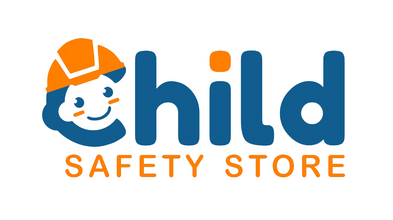
How to Protect Your Baby’s Hearing
Do you know how to protect your baby's hearing? This can be trickier than many parents expect!
Some causes of hearing loss in babies include genetics, premature birth and problems during delivery such as lack of oxygen. However, hearing excessive loud noises at a young age can also cause dangers. Today, let’s talk about what can cause hearing loss and how to help prevent this from happening to your little ones.
There are loud noises all around us. Car horns, alarm clocks, power tools and more distracting sounds are in our everyday lives. Even overly excited Halloween trick-or-treaters can be louder than we may expect! As adults, we are used to them. Babies, on the other hand, can be much more affected by them.
The bottom line is, it is never too early to protect our babies and children from potential dangers that can lead to hearing loss.
Culprits in Everyday Life
Infants have very delicate eardrums. So exposure to high decibel sounds during one’s youth, and throughout the course of one’s life, can result in hearing loss later on down the road. Of course, as parents we don’t intentionally expose our children to harmful noise. Really, the best course of action is to be conscious of your everyday routine.
Once you are on the lookout for these things, it may help you to remove your child from rooms where vacuums are used or very loud voices are prevalent. The truth is, things we don’t think twice about may be a trigger for potential hearing loss. Some high-pitched toys, which children often hold up to their ears, can even become a cause for concern. In addition, earphones can damage the ear canal. The music blaring from these may be too loud.
How Loud is Too Loud?
As we mentioned above, just being aware of this potential issue can help you to protect your baby’s hearing. A good reference point for what is considered “too loud” is whether or not you can clearly hear someone who is three feet away from you. If you are struggling to hear them, the room is too loud for a baby or young child.
Ultimately, that which is causing the sound is less important than the volume of the sound. For instance, classical music can have a higher decibel level than a power saw. In this scenario, while you may find the melodies of the music more pleasant than the saw, the music is still more of a cause for concern.
Monitoring Loud Sounds to Protect Your Baby’s Hearing
Noises that don’t seem very loud to us may bother a child’s eardrums simply because their ears are smaller than ours. If you still need help determining whether a room is too loud, you can download one of many apps that measure nearby decibel levels. Your goal should be to keep the decibel meter below 70db.
When an environment gets too loud, it’s best to remove the child from that space. Of course, sometimes this just isn’t possible. When this is the case, one helpful solution is to purchase earmuffs for additional protection. At Child Safety Store, we recommend KidCo WhispEars. You can watch our full video review of the product below:
Though they resemble headphones, they are much safer because they cover the ears rather than being directly inserted into the ear canal. Just be sure that the product has an NRR, or “noise reduction rating.” These are also light-years better than homemade solutions like cotton balls, which can damage the ear canal as well.
If you worry that your child may be suffering from hearing loss, see an audiologist right away. If potential hearing issues aren’t addressed early, they can affect your baby’s speech and development. Keep the tips from this blog post in mind when your bundle of joy is in a loud environment. When in doubt, it’s always best to try to protect your baby’s hearing.
